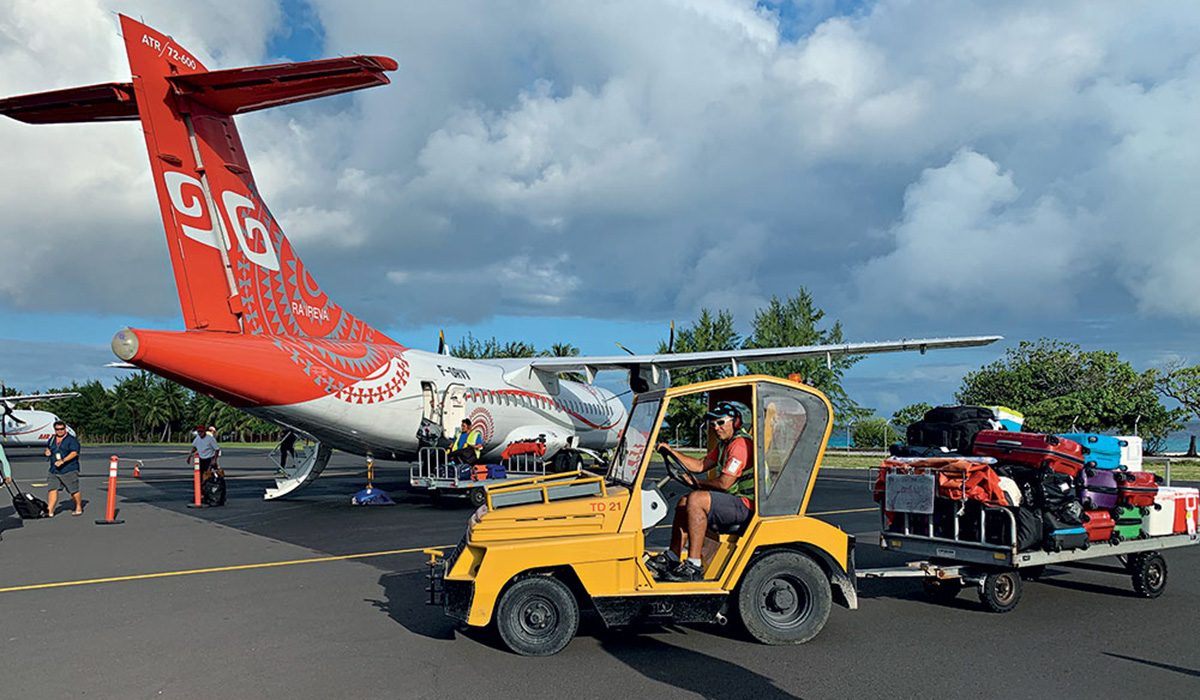This issue of Alert Diver marks the 10-year anniversary of the Winter 2009 redesign of the magazine as a coffee-table quarterly. The new Alert Diver also celebrates the scuba lifestyle with articles about dive travel, underwater photography, ecology and marine biological science. The magazine is also available as a free download for both Apple and Android devices via the Alert Diver app and as an online flipbook.
If you notice health changes during or soon after a dive, you should assume that it is related to diving. The most likely culprit is decompression illness (DCI), the likelihood of which increases with the severity of the dive. If DCI is suspected, you should receive first aid surface oxygen and a proper medical evaluation. Even if your condition is not DCI, first aid oxygen may still help and will not worsen your condition.
Traveling with dive gear isn’t easy. Between the stress of lugging around a bag of heavy yet fragile equipment and hoping that its valuable contents make it intact to your destination, you might spend more time worrying than thinking about the fun you are about to have. If you’re tired of fretting about gear or hauling around more than you need, consider the following points before you pack your bags.
Teaching someone to dive doesn’t happen without risk. If an incident or accident occurs, students may find themselves footing expensive medical bills for which traditional health insurance provides minimal or no coverage. DAN Student Medical Expense Coverage is dive accident insurance designed specifically for new divers in training that DAN fully subsidizes, so there is no cost to students or their instructors.
While there are many great local and land-based destinations, a liveaboard might be the ultimate experience for a vacation dedicated to diving. But the benefits of liveaboard diving, such as traveling to incredible dive sites that can’t be reached from shore and filling your days with dives, require some extra preparation. If you have decided to take the plunge on your first liveaboard trip, here are some tips to ensure smooth sailing.
Most people do not openly admit their fears before diving: Egos and unwillingness to stop someone else’s dive lead many uncomfortable divers to enter the water despite their uneasy feelings. Talk with your buddy before diving, and make sure both of you are comfortable with the dive plan. If your buddy is being unusually talkative or quiet, avoiding certain subjects, compulsively checking gear, repeating questions or acting strange before a dive, continue your communication. Stay positive and reassuring, but don’t dismiss fears or pressure a hesitant person to dive.
Every year about 735,000 Americans have a heart attack; more than 2,000 Americans will have one on any given day. Heart attacks and other cardiac emergencies can happen anytime, anywhere and can be deadly without immediate medical intervention. A CPR certification will enable you to save a life no matter where you are. DAN created its Basic Life Support (BLS): CPR and First Aid course to give people the knowledge and skills they need to recognize and respond to some of the most common emergency situations.
Aquariums can house your own slice of indoor reef life — complete with colorful fish, corals and spunky crabs. Follow these tips to create your perfect aquarium.
DAN member, diver and author Jim W. Bunch talks about discovering and exploring underwaters wrecks on the shores of North Carolina.



